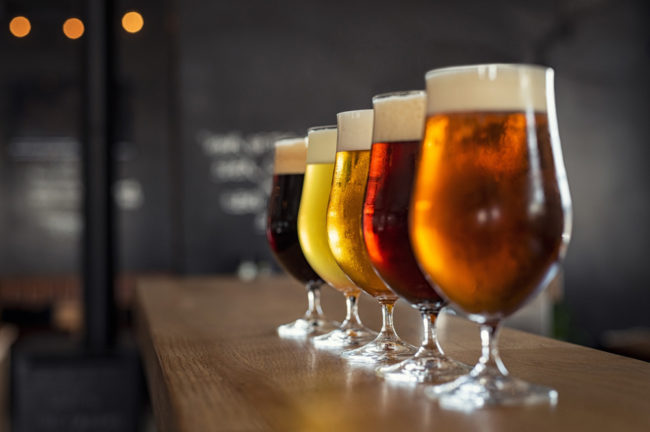It’s no secret that beer is a college staple. Both on and off-campus, it remains the most popular alcoholic beverage in America by a wide margin. Whether it’s a low-key campus mixer or an all-night rager, you’re likely to find beer in abundance.
However, while it is popularly seen as less dangerous than stronger drinks like vodka or whiskey, the side effects of beer can be severe and dangerous.
Before you reach for than next can of beer, make sure to read up on the key disadvantages of drinking beer. Remember, moderation is everything.
1. Calories
One major side effect of drinking beer concerns your waistline. A large beer can contain as much as 300 calories, which is as much as a medium serving of McDonald’s french fries.
Imagine you’ve gone out for dinner and then met some friends and consumed four or five beers. It quickly becomes clear why beer consumption is a major source of weight gain.
2. Addictiveness
One of the major disadvantages of drinking alcohol of any type is the addictive qualities they have. Alcoholism affects millions of Americans every year, often proving to be fatal.
Beer is just as addictive as any other alcohol. If you think you may have an addiction problem, consider checking into an Alcohol Rehab Center immediately.
3. Expense
While a can of beer may be cheaper than, say, a fancy cocktail, that doesn’t mean you’re helping your bank balance. A regular beer-drinking habit can cost you hundreds or even thousands of dollars every single year.
Consider reaching for that soft drink next time you’re in the store, and your wallet will thank you.
4. Dehydration
Beer is a major source of bodily dehydration. When consumed in excess, beer can cause dangerous and even fatal levels of dehydration.
If you have ever woken up with a hangover so bad that your head is pounding and you can barely stand, dehydration is likely the main cause.
5. Intoxication
It’s no secret that one of the major side effects of drinking beer is drunkenness. While getting a little drunk every once in a while is fine, serious intoxication is not.
If your beer-drinking gets you severely intoxicated, you are at risk of injury, sickness, arrest, or exploitation. Drink less beer to stay in control.
6. Blood Pressure
It only takes three beers in a single sitting to raise your blood pressure above the healthy limit. Regular heavy beer consumption will lead to high blood pressure, at any age.
High blood pressure is a leading cause of heart disease, stroke, hypertension, and certain kinds of cancer. Do what you can to keep it down, including laying off the beer.
7. Sleeping Patterns
One major disadvantage of drinking beer is the effect it can have on your sleep. Sure, you might get to sleep easier after a drink, but it won’t help you stay snoozing.
Heavy beer consumption often leads to disturbed sleeping patterns and low-quality sleep, meaning you’ll be tired and fatigued in class the next day.
8. Brain Function
Finally, consistent beer consumption will have a negative impact on your cognitive functions. Beer doesn’t kill brain cells. Rather, it retards the growth of healthy cells.
This can lead to severe difficulties concerning concentration, focus, and mental agility. Consider waiting until after finals week before reaching for another beer.
Now You Know the Disadvantages of Drinking Beer
Knowing the disadvantages of drinking beer is just one important way of staying healthy and safe on campus.














